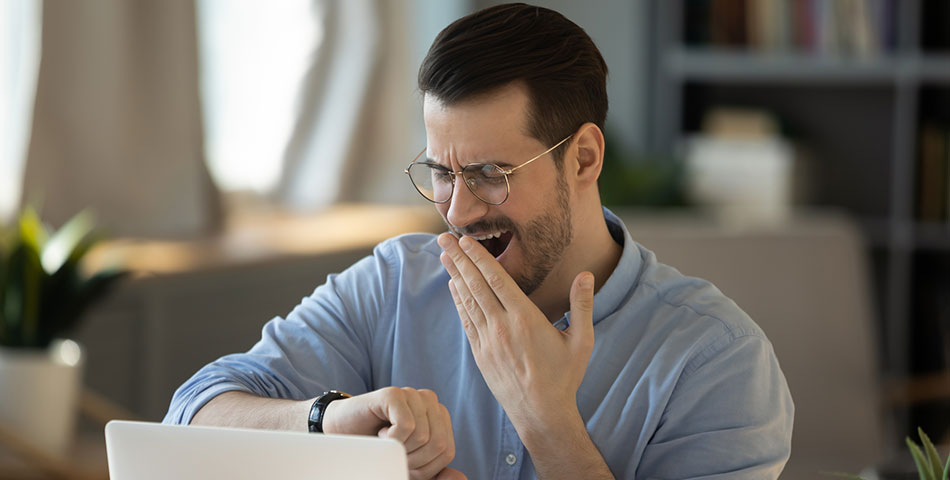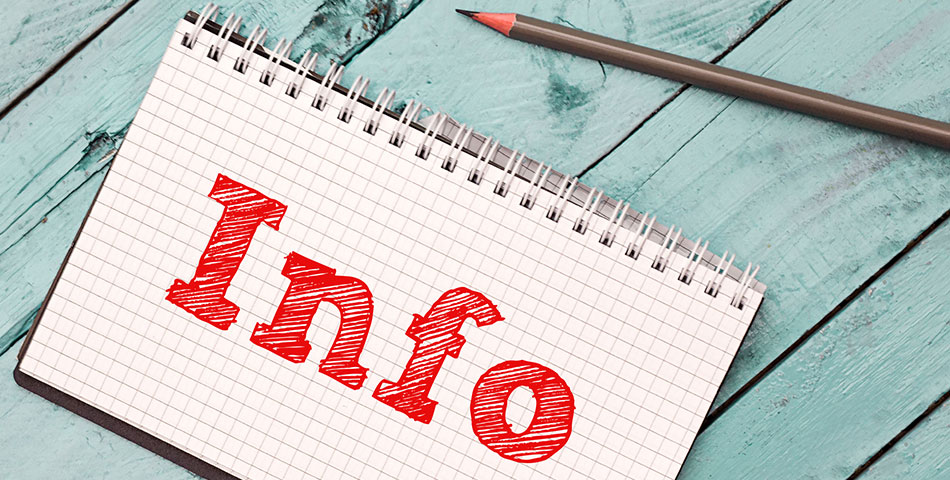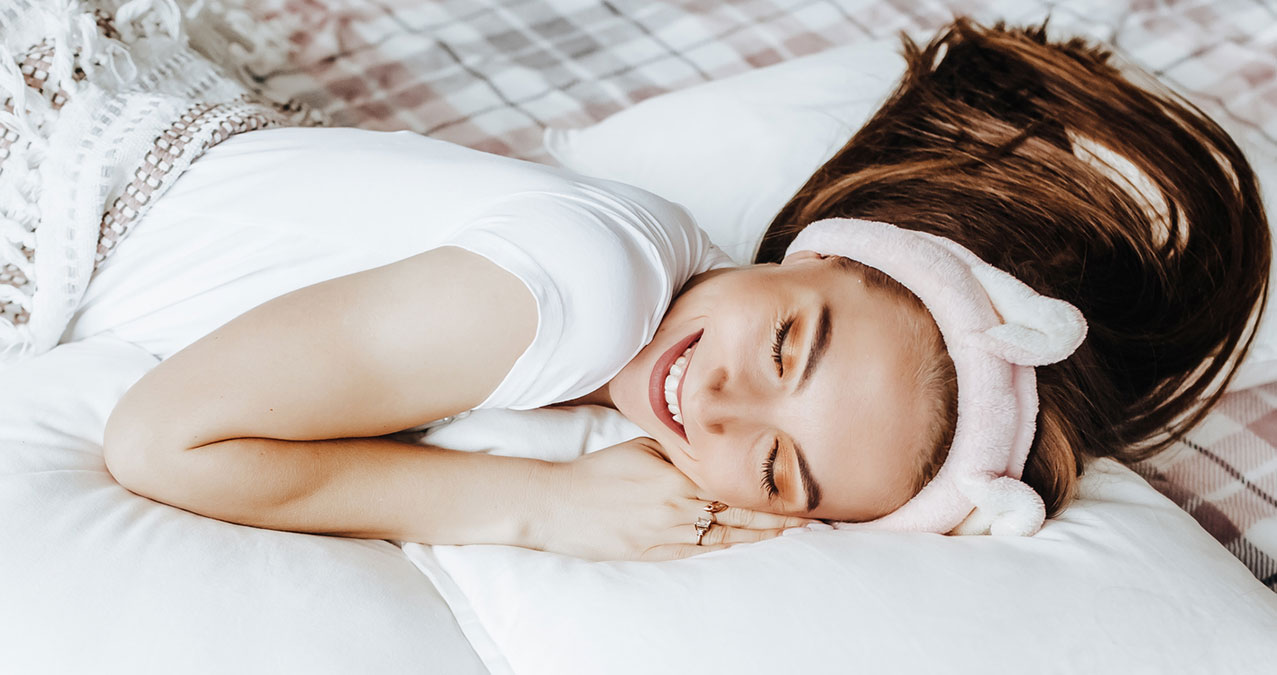Be honest: did you get at least 8 hours of sleep last night?
If not—and if that’s a regular occurrence—you’re likely among the vast majority of people who aren’t taking their sleep seriously enough. Here’s a quick overview of the sleep-related CBD topics we’ll cover in this article:
What Is CBD?
CBD, or cannabidiol, is the primary active ingredient in many hemp and cannabis plants. It’s one of the hundreds of known cannabinoids that are able to activate and regulate the body’s endocannabinoid system. Unlike fellow cannabinoids THC and THCv, CBD doesn’t cause any mental high, although some users still find it meditative and relaxing.
What exactly does CBD do? You might be surprised. If you’ve been wary of claims that make CBD sound like it’s good for everything, don’t be too skeptical. CBD’s ability to regulate the endocannabinoid system, which in turn regulates nearly everything in our bodies, might be the reason for its broadly positive effects.
CBD is most commonly taken in the form of CBD oil, a convenient product that’s composed of a CBD-rich hemp extract and a carrier oil. There are several different types of CBD oil, but for the sake of simplicity, this article will be talking about the most effective one: full-spectrum, nano/hydrophilic CBD oil.
Hacking CBD’s Side Effects
CBD doesn’t have many side effects. And most of the ones it does have are pretty mild.
Actually, one side effect, in particular, can be quite advantageous . . . especially if you want to sleep better.
Let us explain. CBD oil is unique in that its qualities change in response to the dose you take—in a fashion that’s far from linear. If taking 10 milligrams of CBD oil makes you feel calm and collected, for example, then taking 30 milligrams won’t make you feel three times calmer and more collected. It’ll probably make you feel two times calmer and four times more sleepy.
CBD’s dose-response curve, as it’s called by scientists who study CBD’s pharmacology, is to thank for this distinction. This curve is biphasic: a middle-ground sweet spot or “awakening” phase, and a “sedating” phase.
Overshoot your own version of optimal dosing and you’ll be much more likely to experience side effects, like drowsiness. This may be detrimental to your goals, or nighttime drowsiness might be exactly what you’re aiming for. If that’s you, keep reading to learn more about how CBD’s pharmacology can be harnessed and hacked to promote better sleep!
Can CBD Help You Sleep?
So, can CBD help you sleep? All the theoretical and anecdotal evidence we have suggests so. The small-but-growing body of clinical evidence also looks promising. Let’s first take a look at what CBD might do in theory, as these concepts lay a great groundwork for increased understanding.
Traditionally, bad sleep is often caused by the presence of something negative, as opposed to the absence of something positive. It follows that a holistic solution to sleep problems would remove negative factors from this metaphorical equation.
Negative factors like what, you might ask? The biggest one is probably anxiety. But studies show CBD can help relieve anxious thoughts by gently regulating certain serotonin receptors, which in turn help regulate emotions like anxiety and fear.
“Cannabidiol modulates serotonergic transmission and reverses both allodynia and anxiety-like behavior,” according to the title of one rodent study, which also notes that anxiety can be caused by pain.
It’s a vicious cycle: pain causes anxiety, anxiety causes sleep problems, sleep problems cause more pain and anxiety. And even those fortunate enough to be free from chronic pain can be hit by the double whammy of sleeplessness and anxiety.
Thankfully, CBD seems to help by restoring the type of balance whose unevenness likely caused anxiety in the first place. As world-renowned researcher Dr. Di Marzio says, the endocannabinoid system which CBD holistically strengthens helps us“relax, eat, sleep, forget and protect.”
CBD for Insomnia

“I would have trouble sleeping pretty much every single night, for years,” 31-year-old Laura Dobratz explained to MSN. “This meant I was always exhausted during the day and never felt well-rested, which took a toll on every aspect of my life.”
As difficult as Laura’s experience sounds, it’s a common complaint among people who struggle with insomnia.
But things reached a turning point when Laura’s psychiatrist recommended she try CBD oil. She opted for a high-strength product, experienced nearly-instantaneous improvement, and the rest, as they say, is history.
Of course, Laura is far from the only person to have benefited from the sleep-enhancing effects of CBD. Many of our customers experience the very same outcome. In addition to its indirect effects (like the anxiety and pain relief we mentioned earlier), CBD may lower neuro-inflammation enough to let your nervous system calm down, which can then help you get you some much-needed rest.
How to Use CBD for Insomnia
Harnessing these sleep-friendly benefits is simple. Use a slightly higher dose of CBD than you normally would, and take this dose slightly closer to bedtime.
Do you take 20 milligrams of CBD per day currently? Then taking an additional 10 milligrams around 1-2 hours before bedtime might be enough to radically improve the quality of your sleep. Feel free to experiment with slightly higher and lower bedtime doses to find what works best for you, but taking an additional 50% of your recommended dosage in the evening is a good place to start.
Interestingly enough, many people who use CBD for their sleep also report dreaming more. This implies CBD could be enhancing REM and deep sleep (the most restorative type there is) in particular.
For those with PTSD, CBD may impact dream quality enough to reduce nightmares. “The Endocannabinoid System Modulat[es] Levels of Consciousness, Emotions, and Likely Dream Contents,” according to this fascinating study.
All that covered, let’s move on to more research-based evidence. A relatively comprehensive 2019 study describes what we know so far:
- CBD may increase the duration of sleep [1]
- CBD may decrease cortisol levels and cause a “sedative” effect [2]
- CBD is more sedating at higher doses [3]
What Type of CBD Is Best for Insomnia?
It’s simple: the best type of CBD for insomnia is the type you enjoy enough to take consistently. Remember, taking CBD for sleep works best if you take a high dose. So be sure to select something that makes high doses bearable.
There are also a few practical rules of thumb you can follow. Full-spectrum CBD remains more effective on a mg by mg basis than CBD isolate, so opt for products that retain nature’s original design. And nano-enhanced CBD products are another level better.
On the other hand, try to avoid slowly-digesting CBD products if bedtime drowsiness is your goal. Taking a CBD edible shortly before bed might not do much if it takes two hours to start kicking in.
Other Sleeping Tips
Sleep hygiene
Did you know that the sleep hormone melatonin is produced in the morning? It’s true—but if and only if one gets enough light exposure to allow certain light-dependent chemical reactions to take place. This endogenously-produced melatonin is then released at night in order to promote sleep. Good sleep begins with morning sun, so consider optimizing your schedule if you want to improve your sleep hygiene.
The inverse concept is also true. Just as it’s helpful to get out in the sun during the day, avoiding artificial light at night is extremely beneficial. Things like blue-blocking glasses and blackout shades can help with this.
Sleep schedule
Another important practice is trying to keep your sleep schedule consistent. The systems that control your inner clock—and thus your sleep cycles—prefer that things stay predictable. Consider rising with the sun every morning or at least going to bed and waking up at similar times.
This consistency is more important than you might think. Just a single night of poor sleep can cause your body’s hunger hormone levels to rise . . . and that can make sticking with other health and wellness goals that much harder.
Sleep & fitness
“If I don’t sleep 11 to 12 hours a day, it’s not right.” Those are the words of none other than tennis king Roger Federer. If they sound extreme . . . you might be right. But you might also be missing out, especially if you’re a hard-training athlete.
Why? Because sleep both improves and can be improved by consistent exercise. Good sleep has been shown to reduce stress hormones, speed muscle repair, and boost “good hormones” like HGH.
Sleep & alcohol?
It’s been a long day, and even though it’s now 10 pm you’re still struggling to wind down. You reach for a bottle of wine, or perhaps a shot glass of liquor, and proceed to self-medicate your way to drowsiness . . .
If this sounds familiar, you’re not alone. But alcohol isn’t as helpful to sleep as it might seem at first; there’s even some evidence that it raises one’s resting heart rate during sleep.
So if you need a natural way to unwind at night, consider CBD oil instead. Some clinicians report that patients who were once dependent on alcohol for sleep have successfully made the switch to CBD. Of course, it also doesn’t hurt that CBD could be anti-addictive.
Frequently Asked Questions

How much CBD should I take for sleep?
Great question! It depends on who you ask. We’d advocate for taking an additional half your daily dose 1-2 hours before bedtime. If you normally take 20 mg, take another 10 at night; if you normally take 40 mg, take another 20 at night.
Some experts favor a more uniformly aggressive approach. “I recommend starting with 20mg taken one hour before bedtime, many people will see improvements just at this starting dose,” M.D. Mary Clifton tells MSN.
When should I take CBD oil for sleep?
Ideally 1-2 hours before bed. That’s assuming you’re using a fast-acting CBD oil, not a topical or capsule product.
Remember, however, that supplementing with CBD is very forgiving. It doesn’t affect sleep in the ways that more ‘conventional’ sleep aids do.
For example, taking melatonin can make you tired regardless of when you take it. It’ll override your body’s circadian cues and send the hormonal signals for bedtime . . . whether you want it to or not.
CBD is different. Taking a moderate dose during waking hours won’t actually make you tired. Taking CBD at night, however, leaves around 80% of users feeling well-rested, happy, and healthy.
Sleep’s Role In the Healthy Lifestyle
You do it every night, but have you ever stopped to think about why we sleep?
It seems slightly paradoxical. We humans spend a lot of time sleeping, time that at first glance could possibly be better spent on something more productive.
You may be surprised to know this question still stumps much of modern science. Even in today’s age of technological wonders and medical advancements, the exact reasons behind sleep’s importance remain hard to pin down. “It’s sort of embarrassing,” admits NYU neuroscientist Dr. Michael Halassa.
In order to tackle this question, you have to take a step back and look holistically. Sleep centers around regeneration and restoration of the body. It provides a critical window of time in which to recharge our batteries, reset our internal clock, and heal from the day’s activities. Sleep is a time for body maintenance.
Another crucial component of a healthy lifestyle is exercise. Thankfully, the more active you are during the day, the more naturally sleep will come during the night. So consider getting in motion with sports, movement practices, or yoga!
Additionally, did you know that poor sleep may negate some of the benefits of CBD?
In other words, the mechanism through which CBD works can flow both ways. This 2016 study from the hard-to-pronounce Journal of Psychoneuroendocrinology found that even short-term sleep deprivation could cause a drop in endocannabinoid levels, which are what CBD normally boosts.
The bottom line, then, is that sleeping well may actually help your CBD work better.
So, if you want to improve your sleep habits, take CBD . . . and if you want your CBD to work effectively, sleep more! Nature really is interconnected.
To Your Health,
Green Maiden




